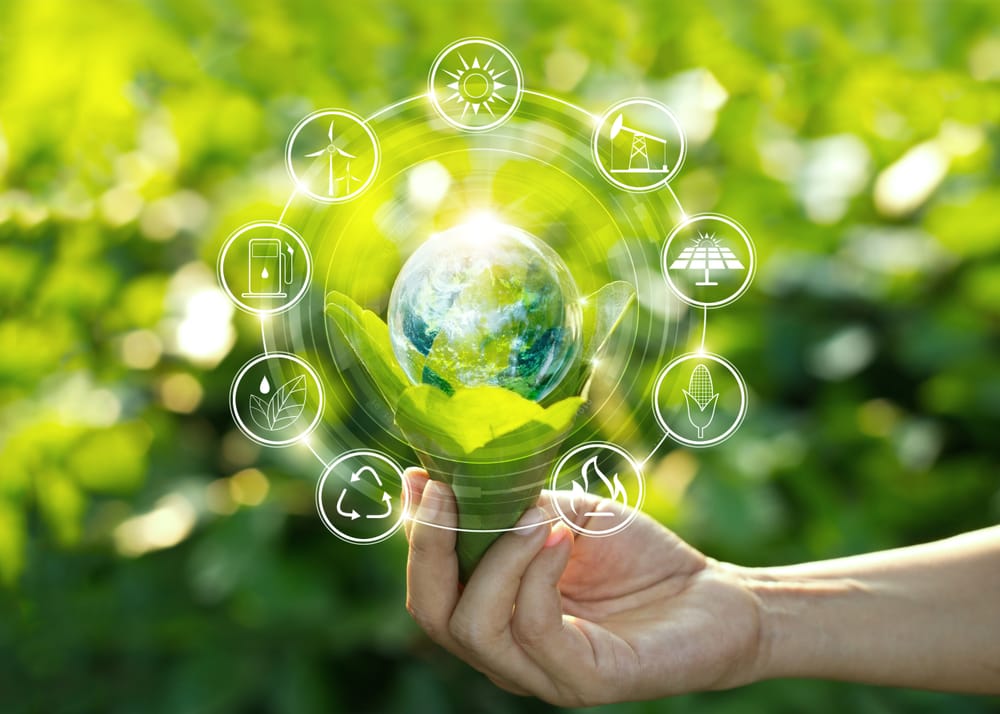In today’s rapidly changing world, environmental sustainability has become more important than ever. As human activities continue to strain the planet’s natural systems, individuals, governments, and industries must take decisive steps to protect and preserve our environment. Among the key aspects of this effort are addressing climate change, promoting renewable energy, and adopting green technologies. Together, these strategies can pave the way toward a more sustainable and resilient future.
Understanding Environmental Sustainability:
Environmental sustainability focuses on conserving natural resources and protecting global ecosystems to support health and well-being, both now and in the future. It involves using resources efficiently, reducing waste, and minimizing environmental damage. Rather than depleting nature, sustainability encourages people to live in harmony with it.
To achieve this balance, society must shift from short-term gains to long-term environmental goals. This shift requires education, innovation, and policy reform. More importantly, it demands collective action across all sectors of society.
Climate Change: A Global Wake-Up Call
Climate change remains one of the most pressing challenges of our time. Human activities, particularly the burning of fossil fuels, have increased greenhouse gas emissions significantly. As a result, global temperatures continue to rise, causing more frequent extreme weather events, rising sea levels, and loss of biodiversity.
In response, countries around the world have pledged to reduce emissions and limit global warming. The Paris Agreement, for example, aims to keep global temperature rise below 2°C. However, meeting these goals requires more than international promises. Everyone—from local communities to multinational corporations—must take immediate action.
Renewable Energy: Powering Progress Sustainably
One of the most effective ways to combat climate change is by replacing fossil fuels with renewable energy sources. Solar, wind, hydroelectric, and geothermal energy provide clean, abundant alternatives that do not emit greenhouse gases.
Moreover, renewable energy offers economic benefits. It creates jobs, reduces energy costs, and increases energy independence. Countries that invest in renewable infrastructure not only protect the environment but also strengthen their economies.
For instance, solar panel installations have surged globally, making solar power one of the fastest-growing energy sources. Likewise, advancements in wind turbine technology have made wind energy more efficient and accessible. These trends highlight the potential of renewables to drive sustainable development.
Green Technologies: Innovations for a Cleaner Planet
In addition to renewable energy, green technologies play a vital role in environmental sustainability. These technologies aim to reduce pollution, conserve energy, and manage waste more effectively.
For example, electric vehicles (EVs) have emerged as a cleaner alternative to gasoline-powered cars. By reducing tailpipe emissions, EVs help lower urban air pollution and dependence on oil. Similarly, smart grids optimize electricity distribution, ensuring that energy gets used more efficiently.
Another important innovation involves green building materials and sustainable architecture. These developments reduce the environmental footprint of construction and promote healthier living spaces.
Furthermore, industries are adopting cleaner production methods through automation and artificial intelligence. These changes not only improve efficiency but also minimize resource consumption and environmental harm.
Moving Forward: A Shared Responsibility
Creating a sustainable future requires joint efforts from governments, businesses, and individuals. Policymakers must enforce environmental regulations and support green initiatives. Companies should integrate sustainability into their core strategies. Meanwhile, individuals can make a difference through conscious lifestyle choices—such as reducing plastic use, conserving water, and supporting eco-friendly products.
Education also plays a key role. By spreading awareness and inspiring change, schools and media can help build a culture of sustainability.
Environmental sustainability is not a distant goal—it is a necessity. By confronting climate change, embracing renewable energy, and leveraging green technologies, society can safeguard the planet for future generations. Each step toward sustainability brings us closer to a cleaner, healthier, and more equitable world. Now is the time to act.




